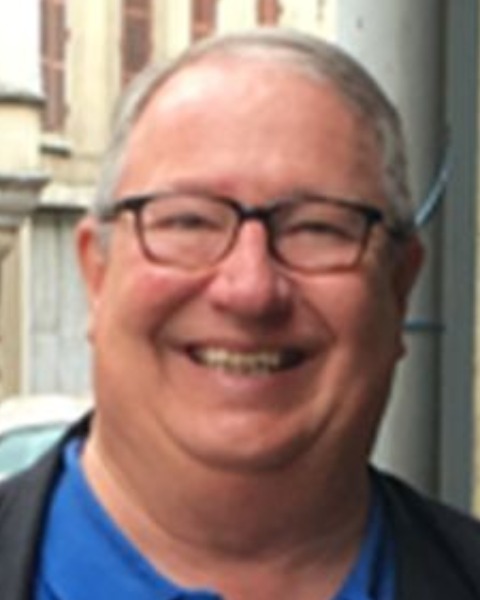How Best to Act Locally to Manage Globally in Aseptic Processing PDA Expert Interview with Joseph Frantz, PhD, MS
 Where should you be on September 11-12 if you are a professional involved with the manufacture of aseptically filled sterile drug products for markets around the world? Without a doubt, at the PDA Global Sterile Manufacturing Regulatory Guidance Comparison Workshop 2024.
Where should you be on September 11-12 if you are a professional involved with the manufacture of aseptically filled sterile drug products for markets around the world? Without a doubt, at the PDA Global Sterile Manufacturing Regulatory Guidance Comparison Workshop 2024.
The workshop is based on PDA’s newly revised Global Sterile Manufacturing Regulatory Guidance Comparison Book (slated for release this fall). We caught up with Joseph Frantz, PhD, head author of the book, which analyzes global Health Authority guidance documents. The book is written to examine similarities and differences between Health Authority guidelines for aseptic processing. Not only are the Health Authority documents written to comply with Good Manufacturing Practice (GMP), but the guidance documents analyzed apply to all major market countries and regions. Additionally, He is also the Chair of the PDA Global Sterile Manufacturing Regulatory Guidance Comparison Workshop 2024.
Guiding Principles
It takes tenacity and shared purpose to take on a project with such a broad scope as the revision of the Regulatory Guidance Comparison Book. Joe told us that his role in revising the book has been to facilitate and draw from the expertise of each member of the Task Force. He explains, “Our goal was to construct a matrix of regulatory guidelines on aseptic processing from seven Health Authority documents.” With that goal in mind, Joe had to establish a process that made it possible for the team to run smoothly at a manageable pace so they could complete the complex task in a timely manner. Joe states, “Knowing this book would represent PDA and the Task Force, my role was to be mindful of the need to establish high standards to ensure the output is both credible and effective.”
He is well qualified to lead the team to ensure every aspect of the book is on point. Joe is a recognized expert in sterility assurance (SA), with over four decades of experience in research and development (R&D), manufacture and quality assurance (QA) of vaccines for humans and animals. Joe's career includes SmithKline Animal Health, Pfizer Animal Health and Sanofi Pasteur, and he holds a Master of Science and PhD in medical microbiology and immunology from the University of Oklahoma Health Sciences Center and completed a post-doctoral fellowship at the University of Kansas in the structure and function of bacterial enterotoxins.
The State of the Industry
Understandably, Joe is highly invested in sharing his team’s work and its intrinsic value to professionals. He says the guide is an extremely useful tool for internal assessment of sterile manufacturing facilities, equipment, procedures and personnel. “First and foremost, the pharmaceutical market is global. The companies that manufacture sterile products reach every country in the world. This book provides a tool for two co-reliant groups: the companies that produce sterile products and the Health Authorities that regulate them. A common goal for both groups is to deliver sterile products to patients when and where needed. This book is a primer for both groups to form a common understanding of the best and most economical practices today,” he explains.
Lifelong Learning
Staying ahead of the complex, international landscape of compliance is a challenge. Joe says, "There are 194 countries that are signatories to one or more of the seven Health Authority documents in the book. From my personal experience, manufacturing sites distribute sterile products to global markets and, consequentially, host Health Authority inspections from multiple countries. A manufacturing site could spend as many as 150 working days or more per year hosting inspectors. From the company's perspective, just imagine the value of standardization around globally recognized best practices. This would simplify the Health Inspection process for both parties."
He adds, “Newly hired and untrained aseptic operators face a sharp learning curve. Depending on the pace of operations, the education of an untrained operator to function independently can take 18 to 24 months. One aspect of that training is an appreciation for the guidelines for sterile manufacturing.” The workshop will provide leadership, management and supervisors with a tool to educate new and experienced staff on local procedures for aseptic processing.
Experiential Education
The workshop moves beyond theory to the practical application of knowledge for manufacturers who must watch over the status of sterile manufacturing. The sessions are designed to be practical for attendees with methods that can be implemented for their organization’s benefit. Joe adds, “The workshop will provide take-home knowledge that will help ongoing evaluation of any site’s situation.” For example, he explains, “Whether a contamination control strategy is specifically called for by a Health Authority document, it is universally expected for every manufacturing site to have a proactive approach toward preventing contamination. One of the workshop sessions will provide a method to perform gap assessment against global aseptic processing requirements.”
About the Expert
 Joseph C. Frantz, MS, PhD, Consultant
Joseph C. Frantz, MS, PhD, Consultant
Joe is a recognized expert in SA with over four decades of experience in R&D, manufacture and QA of vaccines for humans and animals. Joe’s industrial career includes SmithKline Animal Health, Pfizer Animal Health and Sanofi Pasteur. At Sanofi, Joe led multifunctional teams on the development and validation of sterile manufacture of human vaccines. Additionally, Joe joined Global Quality Assurance as the Global Head of SA, and in this role, Joe led the Sanofi Pasteur Center of Excellence for SA and co-led the Sanofi Community of Practice (CoP) for Contamination Control and Sterility Assurance, and he also led The Sanofi CoP company-wide evaluation, revision and publication of sterile manufacturing quality policies. Joe's responsibilities included being the global business system owner for environmental monitoring and continuous improvement by implementing global sterile manufacturing policies.
Joe holds a Master of Science and PhD in medical microbiology and Immunology from the University of Oklahoma Health Sciences Center and completed a postdoctoral fellowship at the University of Kansas in the structure and function of bacterial enterotoxins. In addition, Joe is a retired Naval Officer (Surface Warfare) and proudly served in the active and reserve uniform for 31 years. Joe is now active as a sterility assurance consultant.
Value Add
Joe has a practical take on the value of the workshop. Realistically, commercial manufacturing companies must make a profit. Joe says the workshop deals with key decisions faced by management to prioritize investments without adversely impacting profits. “One of the sessions will include an element of a business case that provides an estimated value for process improvements that achieves regulatory compliance and adds value to the bottom line,” he says.
One of the biggest value-adds to the workshop is that attendees will receive an advance copy of the book and the accompanying Excel worksheet, both relevant for a global audience. Joe says, “The workshop is an exclusive opportunity to understand and gain insights into how best to act locally to manage globally. It provides knowledge of global guidelines, involvement with selected approaches to address challenges and a familiarity with the interrelationships between Health Authority guidance documents.” Plus, attendees will have the opportunity to interact with Task Force members who performed the analysis. Joe says, “The importance of interacting with the Task Force is invaluable in getting first-hand input from the experts.”
Being There
When we asked Joe what he would say to someone sitting on the fence about attending, he answered unequivocally, “Come to the workshop. You won’t be disappointed!”
Register today to secure your seat at this unique global event. It will level up your skills and connect you with peers who face similar challenges. It is the premier professional event of September 2024! It galvanizes shared purpose for compliance and patient safety.


